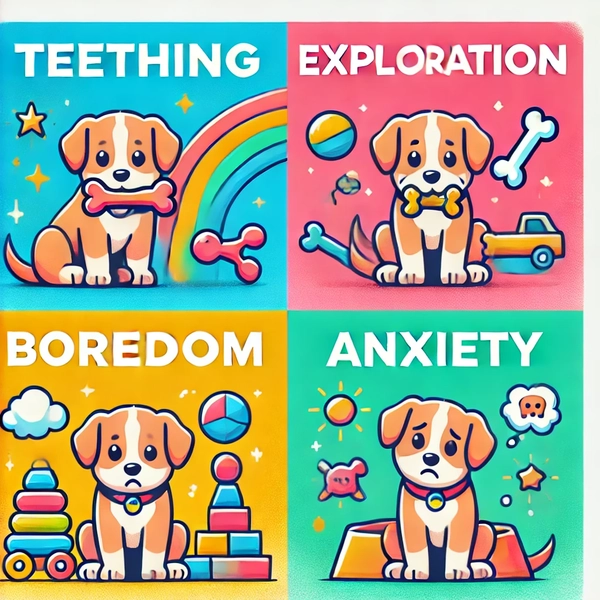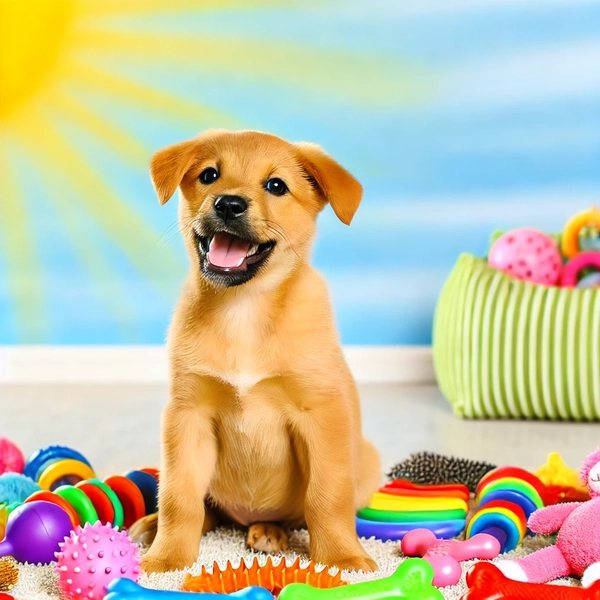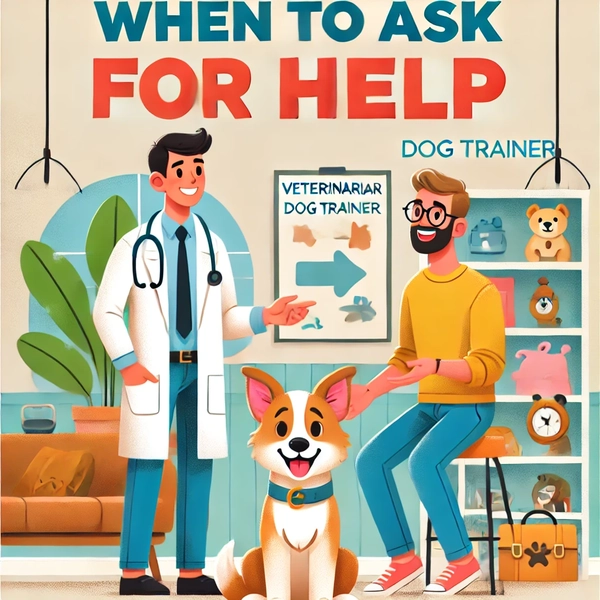How to stop a puppy from chewing everything in sight? – Puppies have become a common phenomenon, and they are quite lovable. Puppies run around in circles, wagging their tails, and they always bring a smile to one’s face until the moment arrives when one opens the mouth & her furry companion is found gnawing at the most expensive pair of shoes or sofa and, even worse a phone charger!
For those with questions like, ‘How to stop a puppy from chewing everything?’ Answers await you on this website. So, let us discuss some strategies that help reduce this issue and ensure the pup is happy and healthy!
Understanding Why Puppies Chew All the Time

Now that we have the problem, let’s look at why puppies like to chew. There are several causes for this habit:
- Teething: Like babies, puppies go through a teething phase. Their gums can be sore, and chewing helps relieve that pain.
- Exploration: As paw and mouth appendages, puppies explore with their mouths just about everything. Everything is adventurous!
- Boredom: A bored puppy is most likely also destructive. Puppies can become very restless when they do not have enough constructive stimulation and seek it out in their surroundings.
- Anxiety: Sometimes, puppies chew because they are stressed or anxious. This chewing behavior can become associated with nervousness that arises from particular changes in their immediate environment or routine.
Contributing to the causes of puppy chewing is food understanding of why such behaviors ought to be curbed.
How to Stop a Puppy from Chewing Everything in Sight

As adorable as puppies can be, they may sometimes become a menace to the household and begin chewing on things they should not. Well, the good news is that there are easy-to-employ solutions to this kind of puppy behavior.
1. Give Suitable Chewing Toys
The best way to ensure your puppy will not chew on your things inside the house is by giving him appropriate chewing toys. These may include different types of teethers for puppies. Some more recommended options include;
| Type of Toy | Description |
| Rubber Toys | Durable and great for teething. |
| Nylon Chews | Long-lasting and can withstand heavy chewers. |
| Interactive Toys | Toys that dispense treats can keep them busy. |
| Soft Plush Toys | Perfect for cuddling and gentle chewing. |
Tip: Try to use the toys for chewing with the puppy instead of any other items at home.
2. Encourage Them to Another Activity
You would turn his attention towards the toy whenever your pet is gnawing something inappropriate. You can say, ‘No, chew on this instead of this one!’ Remember that puppies respond well to positive reinforcement, so it is good to stroke or praise them whenever they pay attention to their toys.
3. Try More Complex Measures
Sometimes, correction suggests using the measures of self-restraint. Apply bitter apple spray or suchlike harmless sprays. The point of these sprays is to make certain items unpleasant tasting so that a puppy does not chew on shoes or furniture. Just apply a light mist on the items you wish to save!
4. Create A Schedule
Routines are every dog’s best friend! Ensure your puppy has a timetable that entails the following:
- Regular exercise: Plan and execute at least 30 minutes of daily physical activity that could include walks, play, or training.
- Health and obedience sessions: Train your dog to execute commands such as sit, stay, and leave. This exercise will make your pet’s mind and bodywork.
- Playtime: Allow your dog or other pups to play with you for an adequate period. This also ensures that there are no dull moments.
5. Control Access To Items That Can Be Chewed On
Now, look around your abode. Are there things that can overly entice your puppy? Control their access to these items by:
- Holding onto the shoes and concealing them in a wardrobe.
- Raising wires or installing wire cover cases.
- Getting rid of all the items within their reach that they are not supposed to chew.
Tip: Dog-proof your entire house!
When to Ask for Help

If your puppy is chewing excessively or inflicting destruction, it is wise to seek assistance. A vet or a dog behaviorist can help answer the problems particular to your little dog. They can also rule to determine whether disparate health problems are causing the chewing.
Signs You Might Need Help:
Look out for these indicators that point to the need for extra assistance for your puppy:
- Chewing always, regardless of the number of toys available to the puppy.
- They appear to be anxious or stressed for an extended period.
- Excessive drooling or noisy mouth because of pain is evident.
It is undoubtedly challenging to get a puppy to stop chewing things it is not supposed to chew, as this can be in most cases. The good news is that it has its winners.
More importantly, figure out the appropriate chewable for them, control their behavior, and engage the puppy.
With time and determination, any owner can instill in the pup what it can gnaw at and what it has to leave. Not only will this save your possessions, but your puppy will also return in praise!
FAQ
How can I determine if my dog has turned to chewing because he has nothing to do?
If your pup nibbles the furniture or some object in the house whenever they are alone for a long time, this is often caused by boredom.
Look out for excessive energy, whining, or digging. Boredom can help mitigate such behavior through exercise and mental activity.
Which types of chew toys would be most appropriate for puppies?
Select soft rubber chewable, Nyla bones, and interactive toys that throw out food. These are suitable choices as they pose no harm to the pet and occupy them well.
Plush dolls are good, too, as they offer soft companions for teething pups who want something gentle to chew.
Is it ever acceptable to discipline my pup for chewing on things?
Avoid harsh reprimands. A better approach would be to hand them a toy, encourage them to chew on acceptable items, and praise them for that action. Behavioral training is done better with positive coaching.
What if my puppy does not like playing with toys?
Try other toys and wait for your puppy to choose which one they like. Some are attracted to squeaky toys, while others may want chew-and-pull toys. Interacting with them can also get them interested in toys.
Will crate training be beneficial against chewing?
While crate training is a tool to address chewing concerns, it helps when you cannot constantly watch your pup. Always designate the crate as a ‘happy place,’ i.e., with cozy bedding and toys inside, and never as punishment.
Final Thoughts
Do not freak out the next time you discover your puppy munching on your favorite slipper! Calm down, employ our strategies, and realize that chomping is part of healthy behavior. When nurturing your dog, habits can also be changed aggressively balanced.
Let me remind you that all these measures are doable and have positive outcomes; it is happy, well-mannered puppy time! Have fun along the way, and remember that you can and should share some details of your victories and struggles with the dog owners. They can also help and offer ideas.
Now, take a chew toy and make your puppy enjoy himself. 🐾